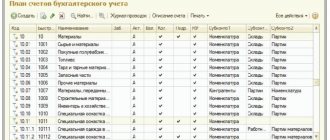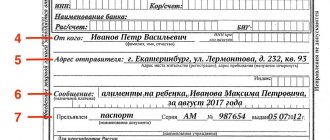Sale of real estate: different rules for calculating income in accounting and tax accounting
When selling a building or premises, the seller must record income and calculate taxes on it. What specific taxes are depends on the taxation system used. If a company applies a general taxation system, then upon sale there is an obligation to calculate two taxes: VAT and income tax. If the property is a residential building or premises, then a VAT benefit applies (clause 22, clause 3, article 149 of the Tax Code of the Russian Federation).
Since ownership rights to any real estate are subject to state registration, when selling there is almost always a time gap between the transfer of the object under the deed and the registration of ownership of it. This circumstance leads to the emergence of temporary differences, which, in turn, lead to the emergence of a deferred tax asset (DTA). This is due to the fact that the moment of recording the proceeds from the sale of real estate in accounting and tax accounting is different.
In tax accounting, the date of sale of real estate is the date of transfer of this property under a transfer deed or other document on the transfer of real estate (clause 3 of Article 271 of the Tax Code of the Russian Federation). In accounting, to reflect revenue, the transfer of ownership from the seller to the buyer is important (clause “d”, clause 12 of PBU 9/99 “Income of the organization”). Therefore, in accounting, income from sales is shown only at the moment when the ownership right is registered to the new owner. This difference leads to the formation of temporary differences, and therefore to the formation of a deferred tax asset.
As for VAT, here, as well as for the purposes of calculating income tax, the fact of registration of the transfer of ownership does not matter. What is important is the fact that the object is transferred to the buyer according to the act (clause 16 of Article 167 of the Tax Code of the Russian Federation). It is at this moment that it is necessary to include the value of the sold property in the VAT tax base and, accordingly, issue an invoice for it.
Apartment as payment for goods: what accounting entries should be made?
If the price of an apartment, taking into account the costs associated with its sale, exceeds the proceeds, the difference between these values is recognized as a loss
06/16/2017 Author: Expert of the Legal Consulting Service GARANT Vakhromova Natalya
S LLC for the supply of goods, the buyer, according to a settlement agreement, pays for the apartment. The cost of the apartment is equal to the cost of the counterparty's obligations. Next, the LLC plans to sell the apartment.
When receiving an apartment to pay off a debt, accounting entries were made:
Debit 41 Credit 60
— an apartment was purchased;
Debit 60 Credit 62
— the cost of the apartment is offset against the cost of the work performed.
Then the ownership was registered.
Then the apartment was sold to an individual. VAT does not arise; the tax base for income tax is the difference between the cost of the transferred apartment and the cost of the sold apartment. The following accounting entries were made:
Debit 62 Credit 90
- apartment sold;
Debit 90 Credit 41
- the cost of the apartment has been written off.
The result is profit or loss.
Are these arguments and accounting entries correct?
On this issue we take the following position:
When selling an apartment, VAT is not calculated.
For profit tax purposes, the amount of money due to an organization for an apartment under an agreement concluded with an individual should be considered as proceeds from sales.
This income can be reduced by the cost of purchasing the apartment, which follows from the compensation agreement (settlement agreement), as well as by other expenses directly related to such sale (for example, expenses related to registration of ownership and maintenance of the apartment).
If the purchase price of an apartment, taking into account the costs associated with its sale, exceeds the proceeds from its sale, the difference between these values is recognized as a loss taken into account for tax purposes.
The accounting entries, which, in our opinion, are used to record the transactions considered in the question, are given in the text of the answer.
Justification for the position:
According to Art. 309 of the Civil Code of the Russian Federation, obligations must be fulfilled properly in accordance with the terms of the obligation and the requirements of the law, other legal acts, and in the absence of such conditions and requirements - in accordance with customs or other usually imposed requirements.
Unilateral refusal to fulfill an obligation and unilateral change of its conditions are not allowed, except for cases provided for by law (Article 310 of the Civil Code of the Russian Federation).
The obligation is terminated in whole or in part on the grounds provided for by the Civil Code of the Russian Federation, other laws, other legal acts or an agreement (clause 1 of Article 407 of the Civil Code of the Russian Federation). At the same time, along with the proper (that is, literal) fulfillment of the obligation (clause 1 of Article 408 of the Civil Code of the Russian Federation), Chapter 26 of the Civil Code of the Russian Federation “Termination of Obligations” allows for other methods of terminating obligations.
Thus, by agreement of the parties, the obligation can be terminated by providing compensation in exchange for fulfillment (payment of money, transfer of property, etc.). The amount, terms and procedure for providing compensation are established by the parties (Article 409 of the Civil Code of the Russian Federation).
In the situation under consideration, the monetary obligation in the form of accounts payable for the goods supplied is terminated by the debtor transferring the apartment, that is, by providing compensation.
In this case, the obligation terminates from the moment the compensation is provided in return for performance, and not from the moment the parties reach an agreement on compensation. The compensation agreement gives rise to the debtor’s right to replace the performance and the creditor’s obligation to accept compensation (clause 1 of the Review of the practice of application by arbitration courts of Article 409 of the Civil Code of the Russian Federation (information letter of the Presidium of the Supreme Arbitration Court of the Russian Federation dated December 21, 2005 N 102)).
Consequently, until the transfer of the apartment, the obligation of the debtor-buyer to the seller remains.
The valuation of property provided as compensation is established by agreement of the parties (Articles 409, 421, 424 of the Civil Code of the Russian Federation).
Consequently, the value of the property can either be equal to the size of the initial obligation or deviate from it up or down (resolution of the Federal Antimonopoly Service of the Central District dated July 29, 2011 N F10-2026/11 in case N A62-4293/2010).
It follows from the question that the cost of the apartment is equal to the amount of the counterparty’s debt for the goods supplied. The apartment received as compensation will be sold to an individual.
Due to the general principle of freedom of contract enshrined in Art. 421 of the Civil Code of the Russian Federation, citizens and legal entities are free to enter into an agreement, the terms of which are determined at the discretion of the parties, except in cases where the content of the relevant condition is prescribed by law or other legal acts.
The law does not prohibit organizations from selling their property, including apartments, to individuals. The buyer of the apartment can also be an individual who is interdependent with the organization.
Please note that concluding transactions between related parties is not prohibited by current legislation. The presence of interdependence can only entail control of the transaction price by the tax authorities and additional assessment of taxes if it is underestimated (overestimated) compared to the market price (Article 105.3 of the Tax Code of the Russian Federation).
As a general rule, the execution of a contract is paid at the price established by agreement of the parties, except in cases where the law provides that prices (tariffs, rates, rates, etc.) are applied, established or regulated by authorized state bodies and (or) local bodies self-government (clause 1 of article 424 of the Civil Code of the Russian Federation).
The legislation does not classify the sale of real estate, including apartments that are privately owned by citizens or organizations (Article 212, Article 213 of the Civil Code of the Russian Federation), into the private property of other persons as cases where government bodies can establish or regulate the price of execution of such an agreement .
Therefore, the sale price of the apartment is established by agreement of the parties to the purchase and sale agreement.
It is necessary to take into account that apartments are classified as real estate (Article 130 of the Civil Code of the Russian Federation) and their purchase and sale is regulated by special provisions of paragraph 7 of Chapter 30 of the Civil Code of the Russian Federation.
Ownership of an apartment under a purchase and sale agreement passes to the buyer only after such an agreement passes state registration (Article 131, paragraph 2 of Article 8, paragraph 2 of Article 223 and paragraph 1 of Article 551 of the Civil Code of the Russian Federation) .
According to paragraph 1 of Art. 556 of the Civil Code of the Russian Federation, the transfer of real estate by the seller and its acceptance by the buyer is carried out according to a transfer deed or other transfer document signed by the parties.
VAT
The transfer of goods, which for tax purposes include apartments, as compensation is recognized as an object of VAT taxation (clause 1, clause 1, article 146, clause 1, article 39, clause 3, article 38 of the Tax Code of the Russian Federation, letter of the Federal Tax Service of Russia on Moscow dated August 26, 2010 N 16-15/090182).
Moreover, on the basis of paragraphs. 22 clause 3 art. 149 of the Tax Code of the Russian Federation, the sale of residential premises is not subject to VAT (exempt from taxation).
Since, when transferring compensation, the ownership of goods passes from the debtor to the creditor, for tax purposes such a transfer is recognized as a sale (clause 1 of Article 39 of the Tax Code of the Russian Federation). Therefore, in the case of transferring an apartment as compensation, this transaction is exempt from taxation on the basis of paragraphs. 22 clause 3 art. 149 of the Tax Code of the Russian Federation (letter of the Federal Tax Service of Russia for Moscow dated August 26, 2010 N 16-15/090182).
Consequently, when transferring an apartment to your organization, the buyer of your goods, as a general rule, does not charge VAT on its value and does not issue an invoice (clause 1, clause 3, article 169 of the Tax Code of the Russian Federation). Therefore, no VAT amount subject to deduction arises in this case.
At the same time, by virtue of clause 5 of Art. 149 of the Tax Code of the Russian Federation, a taxpayer carrying out operations for the sale of goods (work, services) provided for in paragraph 3 of Art. 149 of the Tax Code of the Russian Federation, has the right to refuse to exempt such transactions from taxation by submitting a corresponding application to the tax authority at the place of registration no later than the 1st day of the tax period from which the taxpayer intends to refuse the exemption or suspend its use. If the counterparty exercises this right, then when selling the apartment he will have to present, in addition to its price, the corresponding amount of tax (clause 1 of Article 168 of the Tax Code of the Russian Federation).
However, the organization will be able to deduct the VAT presented by the counterparty on the apartment only if it itself refuses to apply the benefits provided for in paragraph 3 of Art. 149 of the Tax Code of the Russian Federation, and, accordingly, when selling an apartment to an individual, VAT will be calculated, since a prerequisite for deducting “input” VAT is the use of purchased goods in activities subject to VAT (clause 2 of Article 171 of the Tax Code of the Russian Federation).
If your organization does not refuse to apply the benefits provided for in paragraph 3 of Art. 149 of the Tax Code of the Russian Federation, then the sale of an apartment to an individual is not subject to VAT (clause 22, clause 3, Article 149 of the Tax Code of the Russian Federation). Then, if the counterparty - the former buyer of the goods - refuses to apply the benefits and presents the organization with VAT on the apartment, then the amount of this tax will be taken into account in the cost of the apartment (clause 1, clause 2, article 170 of the Tax Code of the Russian Federation).
Income tax
Due to the fact that the organization does not plan to use the received apartment as a means of labor for the production and sale of goods (performing work, providing services) or for managing the organization, but intends to sell it, then for profit tax purposes such an apartment is not recognized as a depreciable fixed asset (clauses 1, 2 of Article 256, clause 1 of Article 257 of the Tax Code of the Russian Federation, letter of the Ministry of Finance of Russia dated March 20, 2015 N 03-03-06/1/15236).
According to paragraphs. 1, 2 tbsp. 249 of the Tax Code of the Russian Federation, for the purposes of Chapter 25 of the Tax Code of the Russian Federation, sales income is recognized, in particular, as revenue from the sale of previously purchased goods, determined on the basis of all receipts associated with payments for sold goods, expressed in cash and (or) in kind.
Thus, the amount of money due to the organization for an apartment in accordance with the concluded agreement with an individual should be considered as proceeds from the sale of goods, which for profit tax purposes is recognized as income from sales (clause 3 of article 38, clause 1 of article 39, clause 1 of article 248, clauses 1, 2 of article 249 of the Tax Code of the Russian Federation).
When calculating the amount of income subject to recognition in tax accounting (both for the purpose of calculating VAT and taxing the profits of organizations) for transactions in which the parties are persons who are not recognized as interdependent, prices established by agreements should be applied (paragraph three of clause 1 of Art. 105.3 of the Tax Code of the Russian Federation).
The date of sale of real estate is the date of transfer of this property to the acquirer under a transfer deed or other document on the transfer of real estate (clause 3 of Article 271 of the Tax Code of the Russian Federation). Consequently, income from the sale of an apartment is determined on the date of signing the act of acceptance and transfer of the apartment (not on the date of registration of ownership of the buyer).
The procedure for determining the tax base when selling property is established by Art. 268 Tax Code of the Russian Federation.
From the provisions of paragraph 1 of Art. 268 of the Tax Code of the Russian Federation it follows that when selling goods, the taxpayer has the right to reduce income from such transactions by the cost of purchasing these goods, as well as by the amount of expenses directly related to such sale.
The Financial Department explains that the value of property received as compensation is recognized as equal to the value of the debtor’s repaid obligation (letters of the Ministry of Finance of Russia dated 08/31/2012 N 03-03-06/2/94, dated 03/18/2010 N 03-03-06/2/ 50).
This means that the amount of proceeds from the sale of an apartment to an individual can be reduced by the cost of its acquisition, which follows from the compensation agreement (settlement agreement), as well as other costs directly related to such sale (for example, costs associated with registration of ownership and maintenance apartments).
According to the financial department, expenses for paying utility bills during the period of ownership of the apartment are taken into account for the purposes of calculating income tax on the date of sale of the apartment in accordance with paragraph 1 of Art. 268 of the Tax Code of the Russian Federation (letters of the Ministry of Finance of Russia dated 03/20/2015 N 03-03-06/1/15236, dated 06/03/2010 N 03-03-06/1/372).
If the purchase price of an apartment, taking into account the costs associated with its sale, exceeds the proceeds from its sale, the difference between these values is recognized as a taxpayer’s loss taken into account for tax purposes (clause 2 of Article 268 of the Tax Code of the Russian Federation).
Accounting
Property received as compensation is accounted for by the creditor, taking into account the rules established by regulations governing the procedure for maintaining accounting records of the relevant assets.
One of the mandatory conditions for accounting for an asset as a fixed asset (FPE) is the condition that the organization does not anticipate the subsequent resale of this object (clause 4 of PBU 6/01 “Accounting for Fixed Assets”). If this condition is not met, the acquired property cannot be accepted for accounting as an asset.
In this regard, in the situation under consideration, in accounting, an apartment intended for resale should be reflected as inventory assets (clause 2 of PBU 5/01 “Accounting for inventories (hereinafter referred to as PBU 5/01)).
The instructions for the application of the Chart of Accounts for accounting the financial and economic activities of organizations, approved by Order of the Ministry of Finance of Russia dated October 31, 2000 N 94n (hereinafter referred to as the Instructions), stipulate that in order to summarize information on the availability and movement of inventory items purchased as goods for sale , account 41 “Goods” is intended.
In our opinion, in the case under consideration, account 41 “Goods” should not correspond with account 60 “Settlements with suppliers and contractors”, since when receiving an apartment as compensation, the creditor organization does not have an obligation to pay for it (accounts payable should not be reflected ) and, accordingly, there is no need to carry out subsequent offset of mutual claims.
To summarize information on settlements with buyers and customers, the Instructions provide for account 62 “Settlements with buyers and customers”.
Transactions to terminate the obligations of buyers are reflected in the credit of account 62. In our opinion, the receipt of an apartment as compensation must be reflected in the entry:
Debit 41 Credit 62
— the receipt of the apartment as compensation is reflected.
Let us remind you that, according to clause 5 of PBU 5/01, goods are accepted for accounting at actual cost.
Compensation is one of the non-monetary forms of payment.
Paragraph 10 of PBU 5/01 establishes that the actual cost of inventories received under contracts providing for the fulfillment of obligations (payment) in non-monetary means is recognized as the cost of assets transferred or to be transferred by the organization.
In other words, the actual cost of the apartment will be considered the cost specified in the compensation agreement (settlement agreement).
By virtue of clause 5 of PBU 9/99 “Income of the organization” (hereinafter referred to as PBU 9/99), revenue from the sale of products and goods is taken into account as part of income from ordinary activities.
Revenue is accepted for accounting in an amount calculated in monetary terms equal to the amount of receipt of cash and other property and (or) the amount of accounts receivable, determined on the basis of the price established by the agreement between the organization and the buyer (customer) or user of the organization’s assets (clause clause 6, 6.1 PBU 9/99).
Revenue is recognized in accounting if the conditions established by clause 12 of PBU 9/99 are met, one of which is the accomplished fact of transfer of ownership of the goods from the organization to the buyer (clause “d”).
At the moment of recognizing revenue from the sale of goods as expenses for ordinary activities, their actual cost is taken into account (clauses 5, 7, 16, 18 PBU 10/99 “Organization expenses”, hereinafter referred to as PBU 10/99).
Since ownership of the apartment passes to the buyer at the time of registration of ownership, the proceeds from the sale of the apartment cannot be reflected in the accounting records earlier than the specified date.
According to the Instructions, if revenue from the sale of goods cannot be recognized in accounting for a certain time, account 45 “Goods shipped” is used for these purposes. Goods shipped are accounted for on account 45 at a cost consisting of the actual production cost and expenses for shipping goods.
If the organization does not sell apartments on a systematic basis, then when selling an apartment, the organization’s accounting does not reflect income from ordinary activities, but other income in account 91 “Other income” (clauses 4, 5, 7 of PBU 9/99). According to clause 16 of PBU 9/99, other revenues from the sale of goods (when this is not the subject of the organization’s activities) are recognized in accounting in a manner similar to that provided for in clause 12 of PBU 9/99. In other words, other income from the sale of an apartment is also recognized on the date of transfer of ownership of this apartment to the buyer (clause “d”, clause 12 of PBU 9/99).
When recognizing other income from the sale of an apartment, other expenses are recognized in the form of its cost (clauses 4, 11, 14.1, 6 PBU 10/99).
Taking into account the above, we believe that transactions for the sale of an apartment to an individual can be reflected in the organization’s accounting as follows:
Debit 51 (50) Credit 62
— payment of the cost of the apartment has been received from the buyer;
Debit 45 Credit 41
— the apartment was transferred to the buyer by signing an acceptance certificate (clause 1 of article 556 of the Civil Code of the Russian Federation);
Debit 62 Credit 90, subaccount “Sales Revenue” (91, subaccount “Other Income”)
— revenue from the sale of an apartment (other income) is recognized on the date of transfer of ownership of the apartment to the buyer;
Debit 90, subaccount “Cost of sales” (91, subaccount “Other expenses”) Credit 45
— the actual cost of the apartment is written off;
Debit 90, subaccount “Profit/Loss from Sales” (99) Credit 99 (90, subaccount “Profit/Loss from Sales”)
or
Debit 91, subaccount “Balance of other income and expenses” (99) Credit 99 (91, subaccount “Balance of other income and expenses”)
— income from the sale of an apartment (loss) is recognized.
If an organization systematically sells apartments for resale, then, in our opinion, it is advisable to take into account the costs of maintaining the apartments (utility payments) as part of the costs of sale (account 44). If such business transactions are not systematic, then it is advisable to take into account the costs of maintaining apartments as part of other expenses (in the debit of account 91, subaccount “Other expenses”).
Based on clauses 17, 18 PBU 10/99 expenses are subject to recognition in accounting, regardless of the intention to receive revenue, other or other income and the form of expenditure (cash, in kind and other) in the reporting period in which they occurred, regardless of the time of actual payment of funds and other forms of implementation.
Thus, expenses for maintaining apartments, recognized by the organization as other expenses, are taken into account at a time.
The distribution costs accumulated on account 44 can be taken into account by the organization in two ways:
- the entire amount of distribution costs for the month can be included in expenses for ordinary activities, writing them off as a debit to account 90;
- distribution costs can be distributed between sold and unsold goods (clause 9 of PBU 10/99).
The organization must choose one of these methods and consolidate it in its accounting policies.
GARANT.RU
Post:
Comments
Special procedure for property tax
Real estate is subject to corporate property tax (with rare exceptions when the object is classified as preferential property). Until what point will the sold property form the tax base for the seller? Until it is transferred under the deed to the buyer.
In accounting, it is at this moment that the property must be written off from the balance sheet, since it no longer meets all the characteristics of a fixed asset given in clause 4 of PBU 6/01 “Accounting for fixed assets.” Despite the fact that the seller actually continues to be considered the owner of the building, he is no longer obliged to pay property taxes on it. At the same time, in accounting, to reflect a retired fixed asset until the moment of recognition of income and expenses from its disposal, account 45 “Goods shipped” / a separate sub-account “Transferred real estate objects” can be used (letter of the Ministry of Finance of the Russian Federation dated January 27, 2012 No. 07-02-18 /01, dated 03/22/2011 No. 07-02-10/20).
There is one more feature that arises only for those companies whose real estate was located outside the location of the organization and which, in connection with this, were simultaneously registered with another tax office. Such companies must report property taxes to the Federal Tax Service at the location of the building (this procedure has been in effect since January 1, 2019).
Considering that the tax period for property tax is a calendar year, the declaration must be submitted at the end of the year. However, at that time, the organization will already be deregistered with the tax office at the location of the property, since most likely by that time the new owner will have registered his ownership and will automatically be registered with the Federal Tax Service at the location of the property, and the previous owner will be deregistered. Accordingly, the tax office will most likely not accept a declaration from a payer who is no longer registered with it as a current taxpayer.
How to be in this case? There is a solution. Paragraph 1 of Article 45 of the Tax Code of the Russian Federation allows taxpayers to pay taxes ahead of schedule. How does this relate to submitting a declaration? It’s very simple: the amount of tax payable to the budget is determined based on the declaration data. Accordingly, if tax is allowed to be paid early, then the declaration can also be submitted early. This, of course, is not directly stated in the Tax Code, but there are letters that contain such a conclusion (letter of the Federal Tax Service of Russia dated November 8, 2016 No. BS-4-21/21110). It states that the organization has the right to submit to the tax office a property tax declaration in relation to the sold real estate object during the calendar year before the general deadline for its submission.
Therefore, immediately after the company has transferred the property to the buyer under the deed, it can draw up a declaration and submit it to the tax office with which it is still registered at the location of the property.
What if the moment has already been missed, that is, the ownership has been re-registered and, accordingly, the seller of the property has already been deregistered with the tax office? It's OK. Officials explain that in this case the declaration should be sent to the tax office at the location of the organization (letters from the Federal Tax Service dated May 16, 2019 No. BS-4-21/9108, dated November 8, 2016 No. BS-4-21/21110). Although this procedure is not spelled out in the Tax Code of the Russian Federation, there is no other way to do it here. Please note: the authors of the letters warn that when filling out the declaration, it is necessary to indicate in it OKTMO at the location of the disposed real estate property. Thus, the tax itself, regardless of anything, should be paid at the location of the disposed property.
Definition of goods and their types
A product is an object of civil rights or a product of an enterprise’s activity (including a service, work or financial service) intended for sale, exchange or putting into circulation.
According to the Tax Code, a commodity is any property intended for sale. In a broad sense, a product is a tangible or intangible property sold on the market. A commodity in the narrow sense is understood as a product of labor.
For example, a product of mental and physical labor, the result of a service, that is, everything that has a consumer value and its owner can exchange it for another product or money.
All products can be divided into 2 large groups:
- Material-material, having physical properties;
- Intangible – services, consultations. Intangible goods are specific and very diverse:
Utility contracts have not been renewed
It often happens that the property has already been transferred to the buyer and even the ownership has been re-registered, but the new owner has not signed contracts with resource supply organizations (i.e., according to the documents, the seller of the building is still considered the user of utilities). To prevent the seller from having to bear the burden of costs for utilities that he does not actually use, the contract for the sale of real estate usually includes a provision for the buyer to compensate for these costs until he draws up utility contracts for himself.
At the same time, it is obvious that the cost of utilities reimbursed by the new owner cannot be included by the previous owner (real estate seller) in expenses taken into account for tax purposes. After all, he does not consume these services; they are consumed by the new owner, who reimburses him for utility costs.
Here the question arises: does this amount of compensation form taxable income for the seller of real estate?
We think not. However, local tax officials may have the opposite opinion. Unfortunately, there are no recent clarifications from departments on this topic. There is only an old letter from the Federal Tax Service for Moscow dated May 21, 2008 No. 19-11/048675, in which officials consider the situation with the relationship between the subscriber and the sub-subscriber of utility services. This, of course, is not exactly our case, but the conclusion drawn in this letter, in our opinion, can be extended to the situation under consideration. And the conclusion is this: the fee received as reimbursement of expenses from its recipient (subscriber) is not included in taxable income.
After all, what is income for tax purposes? Income from the sale of goods (work, services) and property rights and non-operating income. In our situation, the previous owner does not sell utilities to the new owner. He is just forced to pay the bills of resource supply organizations for some time. Reissue of these invoices to the new owner does not indicate the sale of utilities. This fact only speaks about the re-invoicing of costs in order to reimburse them under the current circumstances.
What about VAT? After all, the amount of this tax is probably taken into account in utility bills.
There is also a risk here that local tax authorities will consider that the VAT included in the refunded amount is a tax that must be paid by the seller of the property. We believe that this approach is wrong. The reasoning is the same as for income tax. The object of VAT taxation is transactions involving the sale of goods (work, services), as well as the transfer of property rights in the territory of the Russian Federation.
In this case, as we noted earlier, there is no fact of provision of utilities. This is the first thing. And secondly, the amount of compensation cannot be equated to the amount otherwise associated with payment for goods sold, which, by virtue of paragraphs. 2 p. 1 art. 162 of the Tax Code of the Russian Federation increases the tax base for VAT. After all, the refundable amount is not related to payment for the sold property. The property has its own fee, which the buyer pays separately.
Therefore, if during an audit the tax inspectorate tries to charge additional taxes, then in defense of its position you should refer to the arguments we have given.





